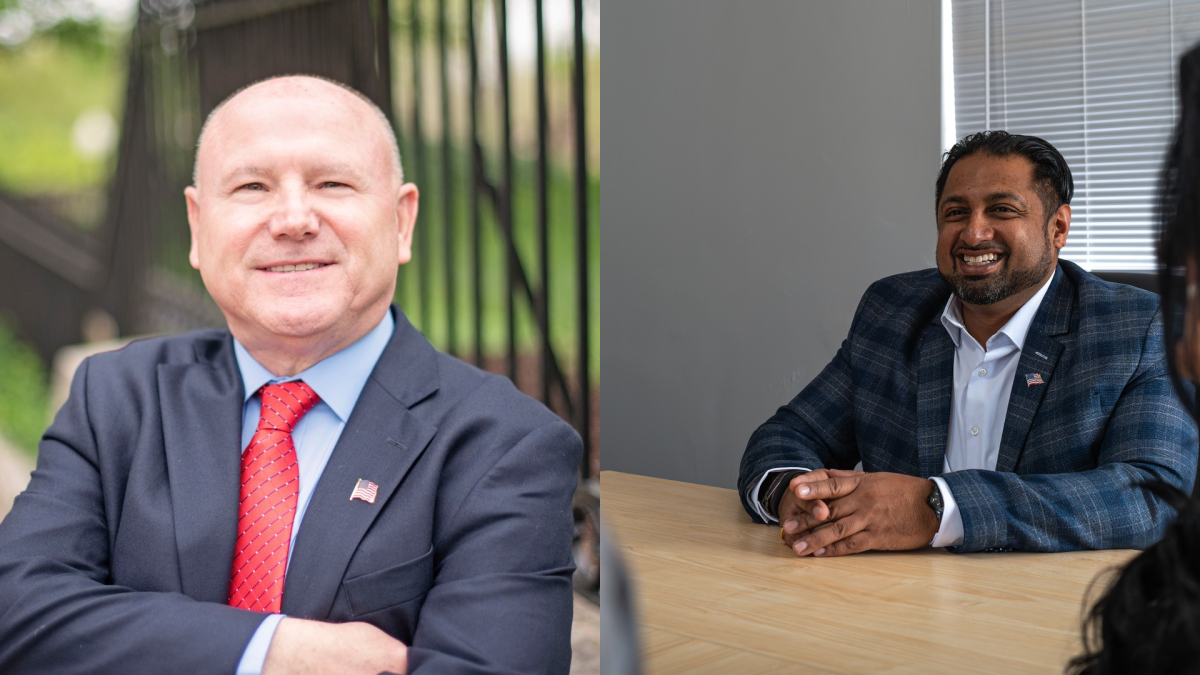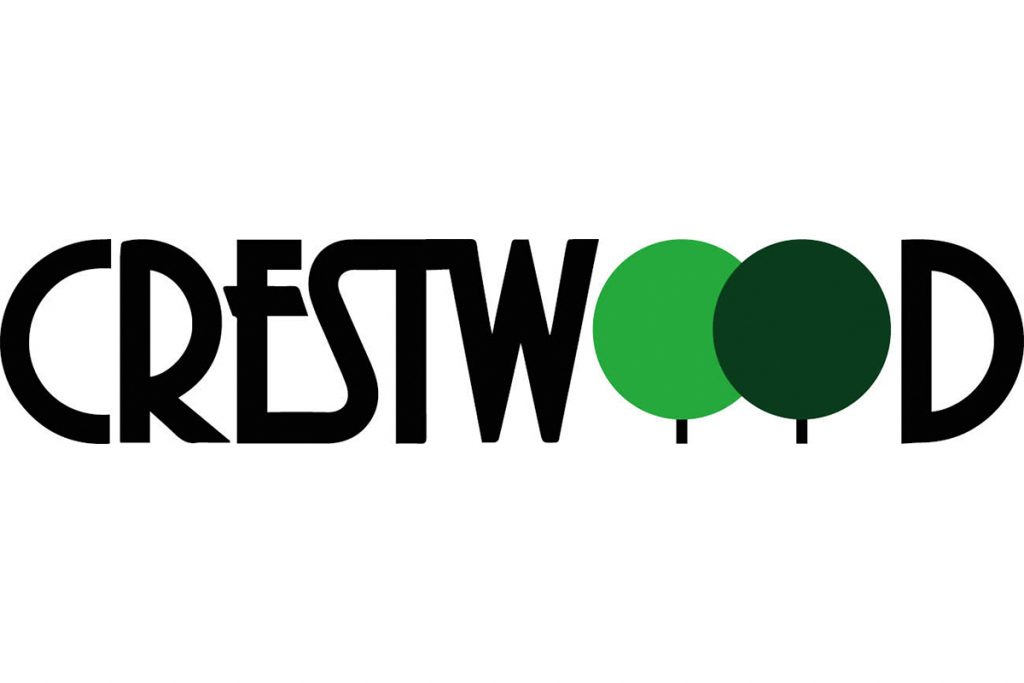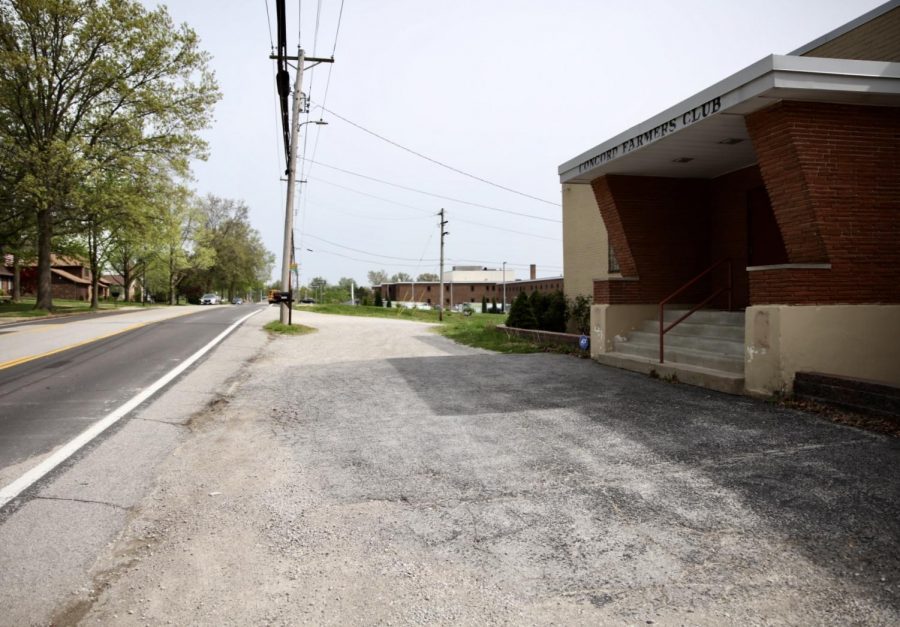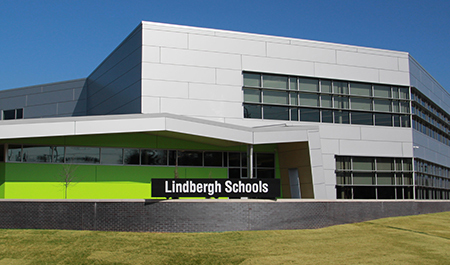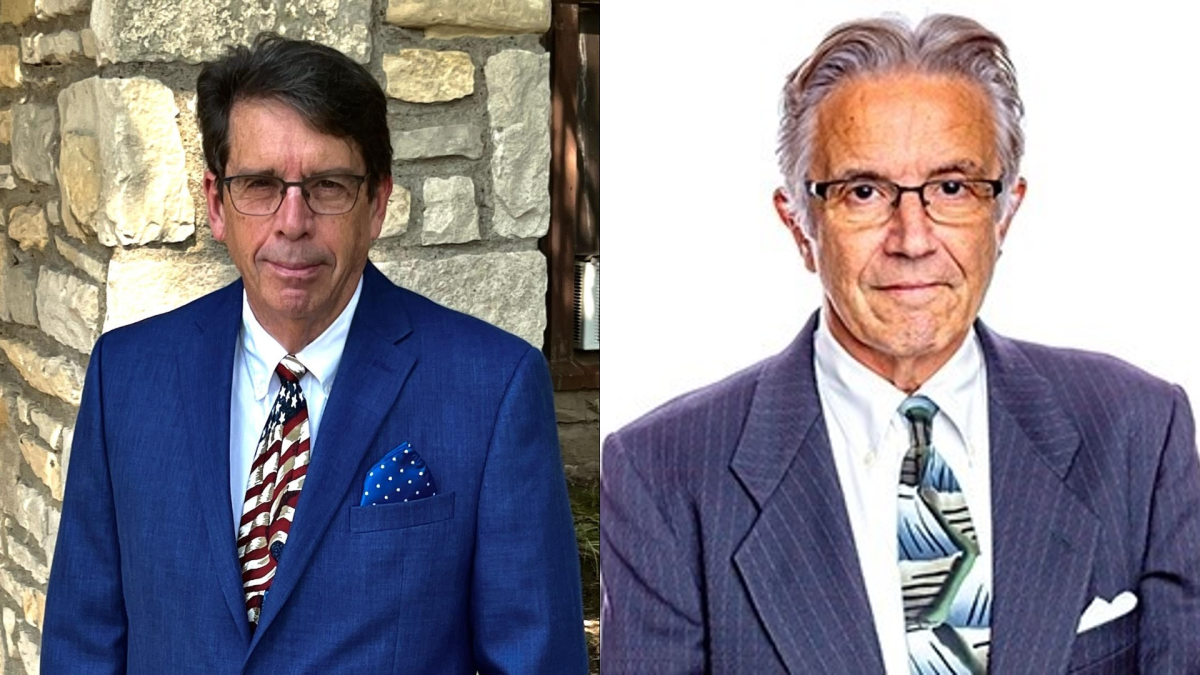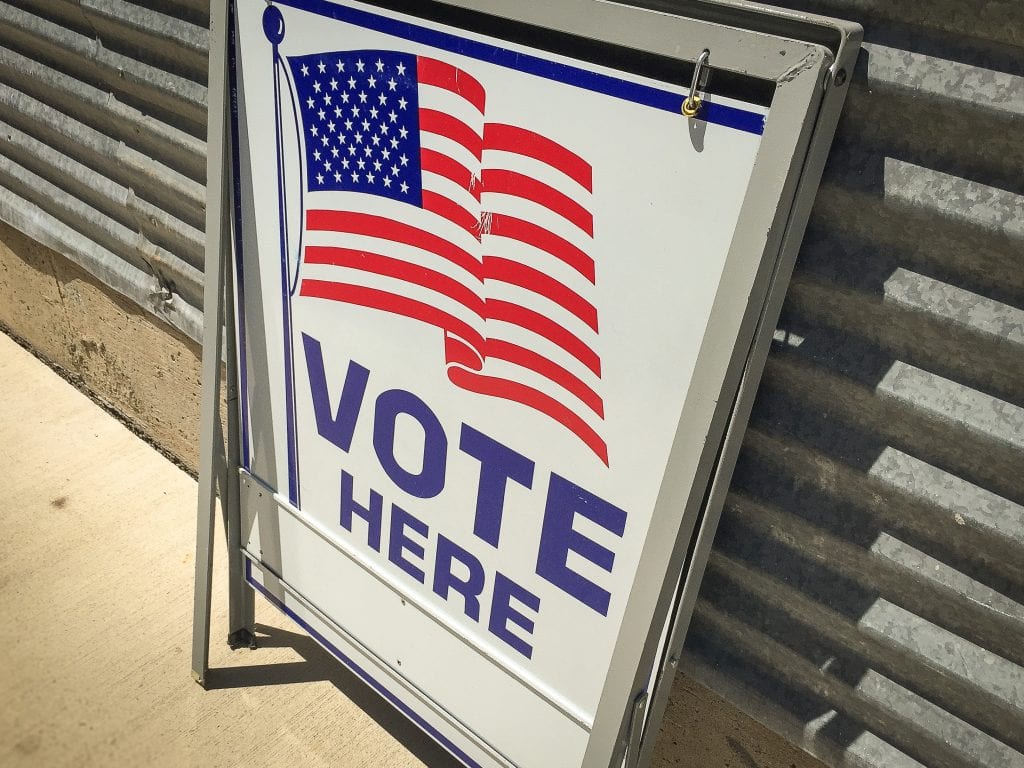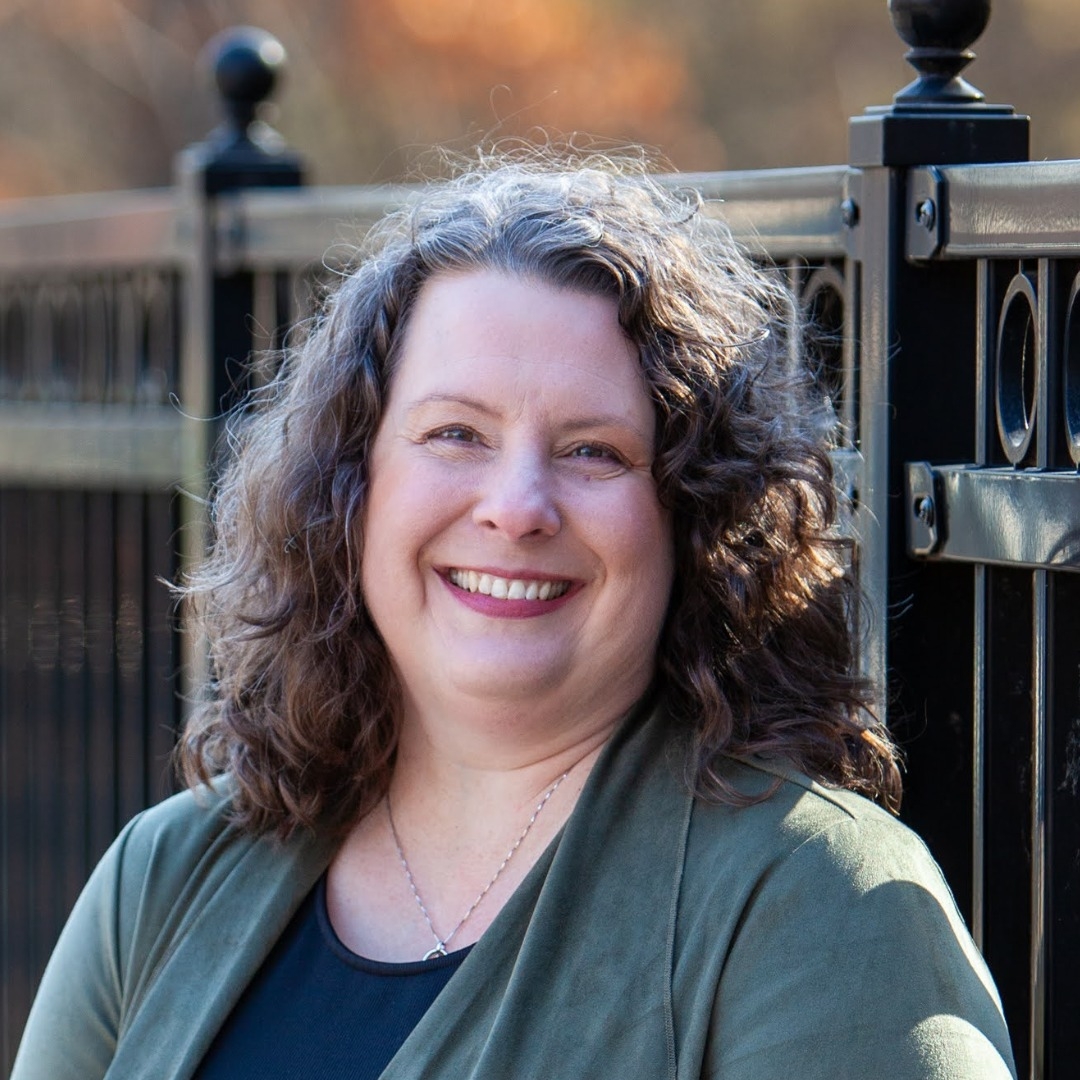By Gloria Lloyd
News Editor
news3@callnewspapers.com
Three candidates are running for two seats on the Lindbergh Board of Education.
Current board President Karen Schuster and board Secretary Mike Shamia are running for re-election, and they are being challenged by Eric Edward Thias, who has never held elected office.
Schuster, 48, 31 Sappington Acres Drive, 63126, is the CEO of LifeBridge Partnership, a nonprofit organization. She and her husband, David, have four children, two that are grown and two that attend Lindbergh Schools.
Schuster is running for her third term “so I can assist with the transition of leadership to our next superintendent and to continue work to develop a strategic plan to address both growth and aging facilities.”
Shamia, 47, 10552 Gregory Court, is the vice president of fixed income and mutual fund trading at Scottrade. He and his wife, Meighan, have three children who attend Lindbergh Schools.
He is running for re-election because “I remain focused on making decisions in the best interest of our students, whether academic or financial.
“I look to continue building on progress from the past year, including fostering positive teacher/staff relations, hiring of a highly qualified superintendent, planning for building needs including an additional elementary space and modernized high school and budgeting to best meet the needs of our student population. I promise to continue bringing a collaborative, results-driven approach to the board that serves our district well.”
Thias, 58, 10560 Hackberry Drive, 63128, is self-employed.
He is seeking office, among other reasons, because of “public concerns, budget matters, educational thoughts and processes of leaders and paid directors.”
The candidates gave the following responses to a Call questionnaire:
What issue do you consider the single most important issue in this race and why?
Schuster said, “The single most important issue for Lindbergh Schools is balancing student enrollment growth with limited financial and facility resources. It is crucial to maintain manageable class sizes and sufficient resources for teachers to ensure individualized instruction for students. However, we must be respectful of the taxpayers and maintain our low tax rates.”
Shamia said, “Student success and academic achievement should always be the most relevant issue in any School Board election.”
Do you agree with the Board of Education’s stance on collective bargaining — negotiating salary and benefits, but not school governance issues such as class size, teacher assignments and hours of operation?
Schuster said, “Yes, this policy must be maintained by the Board of Education to provide control and flexibility over the District’s resources.”
Shamia said, “I agree that administration should be responsible for governance issues. That being said, the teachers should be included in the process in a mutually respectful manner. I’ve had an occasion this past year to sit in on negotiations and the climate is positive. The teacher input is valuable and appreciated. They are most affected by these issues and in a position to provide feedback on the consequences of these decisions.”
Do you believe the district and school board have faithfully adhered to the letter of the Missouri Open Meetings and Records Law, also called the Sunshine Law? What would you do as a board member to ensure the board’s compliance with the law?
Schuster said, “Yes, we have faithfully adhered to the letter of the law and should continue to do so. I will participate in annual training stay current on the requirements or any changes to that law.”
Shamia said, “I believe the Board has adhered to the Sunshine Law. It has been my experience that transparency is a key tenet of the administration and board at Lindbergh Schools.”
Do you believe sex education should be taught in school, including the various types of birth-control methods?
Schuster said, “I believe sex education should be age appropriate and limited to accurate, biological facts, which would include various birth-control methods and their effectiveness. Topics involving values and beliefs such as those related to sexuality and sexual activity should be taught at home by parents. However, I believe the school should be prepared for those types of questions from students and direct students and families to a variety of resources to guide discussions on such topics.”
Shamia said, “Students should have available at least a basic level of age-appropriate sex education curriculum. It’s also very important for parents to play a role, be informed, and be given the tools to supplement this education in the home. The most recent program adopted by the district should be effective for some time.”
Do you believe that school libraries should have information about gay and lesbian lifestyles?
Schuster, “I believe topics involving values and beliefs such as those related to sexuality and sexual activity should be taught at home by parents. However, it’s important to provide a learning environment where students “see” themselves and feel accepted. The district’s responsibility is to create such a learning environment with deference to the various points of view represented in our community.”
Shamia said, “I am a strong proponent of teaching tolerance for all people. Whether you approve or disapprove, alternative lifestyles are part of our culture. My belief is the library should make available age-appropriate and fact-based information regarding alternative lifestyles.”
Do you support the district’s Performance-Based Teacher Evaluation program?
Schuster said, “I believe Lindbergh Schools administrators do an excellent job both evaluating and continually training teachers, as evidenced by our students’ academic success.”
Shamia said, “Performance-based evaluations are proven to be effective as a development tool. Teachers should be evaluated not only on test scores but overall success and individual student progress. I support this type of evaluation in conjunction with professional growth and development opportunities.”
Lindbergh Schools has been the No. 1-ranked academic district in Missouri for five of the last eight years. What do you propose to maintain and/or improve that rating?
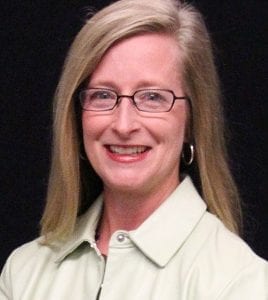
Schuster said, “We should continue to utilize the formula that demands rigor in curriculum development, professional development, and classroom instruction and provides an action plan to achieve success. This formula should be part of a process of continuous improvement that includes defining current and future goals, developing a plan to achieve the goals, implementing the plan, reflecting on the results, and adjusting the plan as needed.”
Shamia said, “Lindbergh schools should continue focusing on classroom curriculum and individual student growth and development. We must also maintain our focus on technology and providing the resources necessary for high achievement. Focus on retaining our quality educators, staff, and administrators while giving them every opportunity for professional development. The incoming Superintendent, Dr. Tony Lake, has a clear vision for future academic success and improvement.”
How did you vote on the district’s Proposition G that was on the April 2014 ballot?
Schuster said, “I voted yes.”
Shamia said, “Yes.”
How did you vote on the district’s Proposition L that was on the November 2010 ballot?
Schuster said, “I voted yes.”
Shamia said, “Yes.”
What political party do you identify yourself with?
Schuster said, “I am an independent and don’t believe political party is relevant to a school board race.”
Shamia said, “I do not identify myself with any political party.”
How would you work to keep politics out of the board’s decision-making process?
Schuster said, “I will be a school member focused solely on doing what is right for the kids and making decisions through a collaborative process that recognizes and respects all points of view.”
Shamia said, “In my experience this past year, all decisions made are based on what is best for the students, district and community. Politics or political affiliation should not be a factor on the board.”
How much of a fund balance should the school district keep in its reserves each year? Please provide specifics to support your conclusion.
Schuster said, “The fund balance is an important piece of a district’s financial picture providing cash flow for operating purposes and funds for unexpected or emergency situations. The timing of revenue is drastically different from the monthly operating expenses incurred by the district. At a minimum the reserve should provide adequate cash flow so the district does not have to borrow funds (i.e., utilize a line of credit) for operating needs. Lindbergh Schools may have a reserve of approximately 30% at our fiscal year end at June 30. However, the reserve drops to approximately 5% toward calendar year end before we receive the majority of our revenue in January.”
Shamia said, “Reserves should be maintained at a level allowing the district to operate and maintain without borrowing additional funds. The current administration is highly effective at budgeting and planning. The district should make use of any available resources but never consider deficit spending in a normalized year.”
Do you believe board members should explain their votes to the media? Or should only the board president speak to the media?
Schuster said, “Any board member has the right to explain their vote to the media, but it should be done in a manner that is respectful of the board’s collective decision.”
Shamia said, “The board president should act as a spokesperson in the instance there is consensus among the members. Otherwise, members should be free to express their opinion to the media if done in a respectful non-divisive manner.”
How do you feel about charter schools?
Schuster said, “The concept is good and I believe parents should choose where their children go to school. However, I have not seen evidence that suggests they provide an educational experience equivalent to traditional public schools. And, I am not in favor of charter schools receiving public funds if they are not held to the same standards as public schools.”
Shamia said, “Charter schools play a role in a district that is underperforming. They should not be a consideration for a top district such as Lindbergh. I would not support any charter school which diverts funding within our district. This is a topic that is being monitored very closely by our administration and the board at the state level.”
How do you feel about the voucher system being promoted as an alternative to the current system?
Schuster said, “I want all children to have access to quality education. However, I do not favor legislation that diminishes local control of a school district, increases taxpayer burden, or creates uncertainty in public school funding. Legislation proposing changes must, at a minimum:
- Protect Lindbergh’s right to define and maintain desired class sizes based upon available space and financial resources
- Ensure any future implementation of vouchers or open enrollment accounts for disparity between districts’ local tax base and costs to educate a child as well as the state’s funding capacity so that districts are not financially harmed
- Establish equitable and meaningful accountability measures for all entities receiving tax dollars “
Shamia said, “I am opposed to the voucher system or anything similar that would divert funds from public schools that are high performing. This is a topic that is being monitored very closely by our administration and the board at the state level.”
What are the biggest challenges — short term and long term — facing Lindbergh Schools?
Schuster said, “The single most important issue for Lindbergh Schools is balancing student enrollment growth with limited financial and facility resources. It is crucial to maintain manageable class sizes and sufficient resources for teachers to ensure individualized instruction for students. However, we must be respectful of the taxpayers and maintain our low tax rates.
In the longer term, Lindbergh High School was built in 1952 and has serious facility needs that must be addressed. In addition to age, the design of the building does not complement current education practices or provide a secured learning environment for students and staff. I believe the district should complete a strategic planning process to determine how and when those facility needs can be addressed.”
Shamia said, “The district’s enrollment is projected to grow for the foreseeable future. This will require additional elementary classrooms along with modernizing the high school to meet the needs of our students and provide a safe learning environment. The district’s budget remains challenged and we must manage the available funding against student needs. We must approach these challenges with an open-mind and willingness to collaborate with all interested parties.
I’ve built an excellent working relationship with administration and look forward to working with Dr. Tony Lake in the future. I believe the district is in great hands and will continue to excel for many years to come. We are lucky to have such a high level of commitment to our students. Strong leadership and dedicated educators will lead to further success for our students, district and community.”
Are you satisfied with the leadership of Superintendent Jim Simpson?
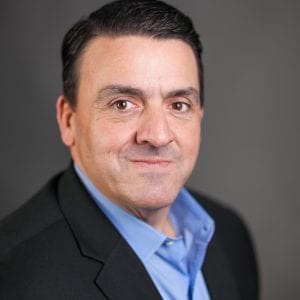
Schuster said, “Yes, I believe Dr. Simpson has led our district to new heights during his tenure. Despite that success, as a board member I have encouraged Dr. Simpson to continue learning and growing. I will expect the same of Dr. (Tony) Lake.”
Shamia said, “The district has been award-winning, maintained its fiscal responsibility, and experienced a great deal of growth and construction. Jim should be recognized for his accomplishments. I will wish him well in retirement.”
Thias said, “I’m willing and hopefully able to keep totally positive on all administrative leaders there to serve and assist the educational mission, as long as they don’t start asking for across-the-board 10-percent raises/more perks.
“Jim Simpson set a very positive tone and carries forth encouragement by voicing it to those he directs so that they become encouragement to others, especially students.”
Would you support a tax-rate increase to fund teachers’ salaries?
Schuster said, “Yes, I would support a tax-rate (increase) if it is determined that additional operating revenue is needed and our community identifies this as a priority to providing a quality education to students.”
Shamia said, “There are funding needs in the district to further support our growth and maintain the level of excellence. I will evaluate all possible solutions to address this issue. The Lindbergh school system continues to be a value for residents living within the district.
“Our children benefit from the award-winning education which helps support and sustain property values. We will need to look at all possible solutions to determine what is best for our students, school district and community while maintaining our board’s fiscally responsible approach. “Teachers need to be valued and are paramount to academic excellence and student success.”
Thias said, “I haven’t caused any weakness or had such a vote. Don’t have deficit spending to begin with.”
If cuts are needed to balance the budget, what would you propose?
Schuster said, “I would propose we utilize community budget committees to do a thorough review of the district’s operating needs and vision for the educational experience. The committees would be responsible for not only making suggestions on where to cut costs, but also prioritizing those cuts. Priorities should be set such that the educational experience and classroom resources are least affected.”
Shamia said, “Any significant budget cuts should result from a fully vetted opinion by a special committee including representation from the administration, students, educators and community. If needed, cuts which would least impact the classroom should be made.”
Would you make any changes to the manner in which the school board currently operates?
Schuster said, “No.”
Shamia said, “I would not make any changes to the manner in which this board is operating.”
Have you been endorsed by any groups, organizations, union, et cetera?
Schuster said, “I have not been notified of any endorsements.”
Shamia said, “I have not received any endorsements for the April 2018 election.”
Should the district allow transgender students to use the same locker rooms as the gender they self- identify as or the physical gender they were born with?
Schuster said, “It’s important to provide a learning environment where students “see” themselves and feel accepted. The district’s responsibility is to create such a learning environment with deference to the various points of view represented in our community. Students should be provided with locker room and bathroom facilities that meet their needs and provide a safe, private space for all people who use that space.”
Shamia said, “All students should be afforded a safe environment at school. The district must be aware of the laws surrounding this issue and be in compliance while protecting a student’s civil rights. I support a workplace and educational environment that is free from discrimination and harassment.”
Do you support Crestwood’s decision to award $25 million in tax incentives to the owner of the former Crestwood Plaza mall site? Why or why not?
Schuster said, “No, I believe Crestwood is a strong, thriving community in which developers can succeed without tax incentives that take revenue away from Lindbergh Schools.”
Shamia said, “I support the redevelopment of the Crestwood mall property. I have a concern over tax incentives related to the proposed residential dwelling. This will have a negative impact on Lindbergh Schools funding for future enrollment growth.”
What is your position on tax-increment financing, or TIF, and what it means to the district?
Schuster said, “I think TIFs are a good economic develop tool when used properly and in partnership with stakeholders that sacrifice revenue as a result. However, TIFs are frequently misused to eliminate business risk and/or ensure profit for a developer at the expense of the community.”
Shamia said, “Any development involving tax-increment financing would need to be independently analyzed on its merits. In many cases it may be necessary to incentivize development where that would otherwise not be the case. I believe the impact on school funding and other local business should be closely scrutinized.”
How should Lindbergh adapt to growing school enrollment?
Schuster said, “Lindbergh should keep up the good work. Administration has done a good job of projecting growth, putting resources in place as needed, and planning facility changes to accommodate growth. However, we will continue to grow and land for additional school buildings is virtually nonexistent in the district. We will need to collaborate with community stakeholders to determine solutions that ensure the quality of learning will continue.”
Shamia said, “The addition of Dressel Elementary provided some much needed short-term relief. It’s evident that we need more elementary classrooms and an expansion/modernization of the high school campus. The ultimate goal is to maintain appropriate classroom size in order to continue providing our excellent level of education to all students.”
Should the district deficit-spend for recurring expenses like salary increases?
Schuster said, “No.”
Shamia said, “No, I do not believe the district should deficit-spend for operating expenses. The board has maintained a track record of fiscal responsibility and would expect that to continue.”
Thias said, “Probably never.”
Do you have any family members employed by Lindbergh Schools?

Schuster said, “No.”
Shamia said, “My wife, Meighan, is employed as a reading specialist at Dressel Elementary School.”
Thias said, “No.”
Do you support the board’s decision to hire Tony Lake as the district’s new superintendent?
Schuster said, “Yes.”
Shamia said, “I fully support the decision to hire Tony Lake as our new superintendent. The district is in great hands moving forward. I’ve met with Tony on several occasions since his hiring and couldn’t be more excited about the future of Lindbergh Schools.”
Do you agree with the decision of district teachers to work to contract last school year?
Schuster said, “No, I would have preferred to open dialogue to reach a resolution.”
Shamia said, “I know this was an agonizing, difficult decision for the teachers. The Blue Ribbon awards and high level of student academic achievement are a direct result of a student faculty that cares deeply about their profession.”
Thias said, “Not fully.”
What should be done about the wave of students headed to Lindbergh High School?
Schuster said, “Lindbergh High School has serious facility needs that must be addressed. In addition to age, we have a large number of students heading to the high school in a few years. The design of the building does not complement current education practices or provide a secured learning environment for students and staff. I believe the district should complete a strategic planning process to determine how and when those facility needs can be addressed.”
Shamia said, “The first step was to move the administration off campus and free up much needed classroom space. Next, there needs to be continued planning for a modernized and expanded campus; one that is secure and meets the needs of our students.”
Would you support the construction of a new high school or a renovation/expansion of the existing LHS campus? How would you propose to fund it?
Schuster said, “Yes. With an estimated cost of up to $100 million, we will need a bond issue to fund the renovation/expansion of the high school.”
Shamia said, “I fully support a modernized high school campus. There is adequate space at our current location to explore a rebuild and possibly expand vertically. This can be done in a phased approach that is well planned. The current administration is aware of the deficiencies on the current campus. I’d expect the community to be receptive of a bond issue funding a project to secure our students and support the wave of students headed to Lindbergh High School.”
How did you vote on the district’s Proposition G in April 2014?
Schuster said, “I voted yes.”
Shamia said, “Yes.”
Thias said, “I was, as other similarly situated residents, very positive toward the lead committee of proponents and this advancement for the schools, physical improvements and some upgrades, needed intensely at the time. I voted in the affirmative, and was surprised when (Prop G committee head Dave Reinhardt) placed third in the next school board election.”
How did you vote on the district’s Proposition L in November 2010?
Schuster said, “I voted yes.”
Shamia said, “Yes.”
Thias said, “As much happened personally in my immediate family and some related health issues and travel stress, I remember little of the lead-up to that particular fall election (medium/long ballot) and it may have been one of very few elections I might not have had participation in (overall less than half a dozen).”
Check back to www.callnewspapers.com to read additional answers from the candidates and read an article on the district forum.
















